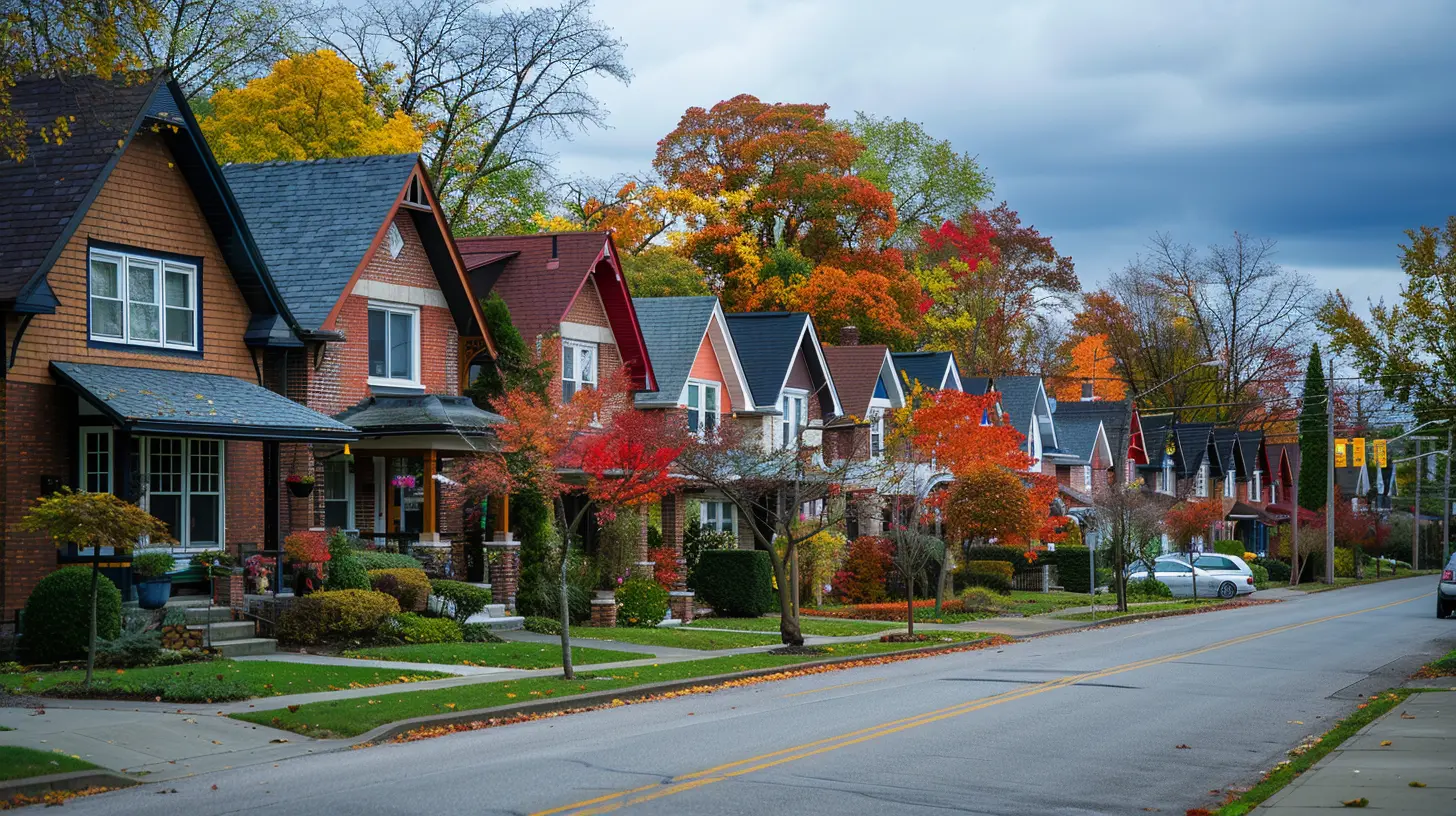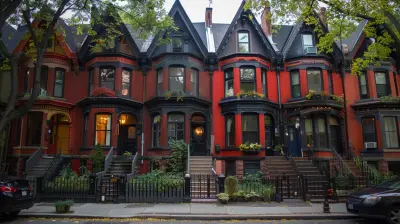Zoning Restrictions for Home-Based Businesses
21 June 2025
Working from home is the dream, right? No commute, no office politics, just you, your coffee, and your business. But before you set up shop in your living room, there's something crucial you need to know—zoning restrictions for home-based businesses.
Yep, your city or county may have rules about what kind of business you can run from home, how many clients you can see, and even where you can park. Sounds crazy? Maybe. But zoning laws exist to keep residential areas from turning into commercial hubs.
So, let’s dive into the nitty-gritty of zoning laws, why they matter, and what you need to know before launching your home-based empire. 
What Are Zoning Laws?
Zoning laws are local regulations that determine how land and buildings can be used. They separate different areas into residential, commercial, industrial, and mixed-use zones.For example, you wouldn’t want a factory in the middle of a quiet suburb, right? That’s zoning at work. It helps maintain order, safety, and property values.
How Do They Affect Home-Based Businesses?
When you run a business from home, zoning laws influence:- The type of business you can operate
- How many employees (if any) you can have
- Customer visits and foot traffic
- Signage and advertising rules
- Parking regulations
- Noise limitations
Ignoring these rules could land you in hot water—fines, legal action, or even being forced to shut down your business. 
Common Zoning Restrictions for Home-Based Businesses
Now, let’s break down some typical zoning restrictions you might face.1. Business Type Restrictions
Not all businesses are welcome in residential neighborhoods. Generally, low-impact businesses—like freelancing, consulting, or online businesses—are tolerated.On the flip side, businesses that involve heavy machinery, hazardous materials, or high foot traffic (like a bakery or a daycare center) might be a no-go.
Pro Tip: Check your local zoning regulations before investing time and money in launching a home-based business.
2. Limits on Employees
Most zoning laws limit or prohibit non-family employees. Some areas may allow one or two employees who don’t live in the household, while others restrict it entirely.If you’re planning to hire staff, you may need to consider a commercial space—or get a special permit.
3. Client and Customer Visits
If your business involves customers coming to your home (like a hair salon or personal training studio), zoning laws might restrict the number of visitors per day or per hour.Some areas ban client visits altogether, while others allow a limited number of appointments. These rules prevent neighborhoods from turning into commercial zones with heavy traffic.
4. Parking and Traffic Issues
Have a lot of customers or delivery trucks coming and going? That could be a zoning violation.Most residential areas aren’t designed for high traffic or commercial parking. If clients regularly park on the street, your neighbors might complain—leading to trouble with local authorities.
5. Signage Restrictions
Thinking of putting up a big, eye-catching sign in your front yard? Think again.Most residential zones ban or limit signs to maintain the neighborhood's residential look. Some allow small, discreet signs, but anything flashy is usually prohibited.
6. Noise and Nuisance Rules
Running a home-based business doesn’t mean you can disturb the peace. Zoning laws often include noise ordinances, meaning loud machinery, music, or crowds of customers could cause legal trouble.If your business involves power tools, musical instruments, or anything loud, check your local noise laws before getting started. 
How to Find Out Your Local Zoning Rules
So, where do you find out what’s allowed in your area?1. Visit Your Local Government’s Website – Your city or county website should have zoning laws and home-business regulations.
2. Call the Zoning Office – Speak directly to someone who can clarify the rules.
3. Check Your Homeowner’s Association (HOA) Rules – If you live in an HOA community, they may have additional restrictions beyond city zoning laws.
4. Consult a Lawyer or Zoning Expert – If you’re unsure, a professional can help interpret the laws and get necessary permits. 
How to Get Around Zoning Restrictions
If zoning laws seem like roadblocks, don’t worry—there are ways to work within the system.1. Apply for a Special Use Permit
Many cities offer special or conditional use permits, allowing exceptions to zoning rules. A permit may let you:- Have employees
- See clients at home
- Install a small business sign
Permits usually require community input, so be prepared for a hearing where neighbors can voice concerns.
2. Rezone Your Property
Rezoning is a long shot, but possible. If you can prove your business won’t negatively impact the neighborhood, the city council might approve a zoning change—but this process can take months (or even years).3. Use a Virtual Office or Co-Working Space
If zoning laws are too strict, consider a virtual office or co-working space for client meetings. This keeps your home-based business legal while maintaining a professional presence.4. Operate Under the Radar (Proceed with Caution!)
Some small-scale home businesses fly under the radar—especially those with no customer visits, employees, or major deliveries.While it’s tempting to quietly run your business without a permit, this approach is risky. If a neighbor reports you, you could be fined or forced to shut down.
Final Thoughts
Zoning restrictions for home-based businesses can feel like a headache, but they exist to balance community needs with personal freedom.Before starting your home-based business, make sure you:
✅ Understand local zoning laws
✅ Check for permits you may need
✅ Find ways to comply with regulations
While it might seem like extra red tape, following zoning laws protects your business from legal trouble down the road. After all, the last thing you want is to build a thriving business—only to be shut down over an obscure zoning rule.
So, do your homework, stay compliant, and turn your home-based business into a success—legally!
all images in this post were generated using AI tools
Category:
Zoning RegulationsAuthor:

Travis Lozano
Discussion
rate this article
2 comments
Selena Lane
Understanding zoning restrictions is crucial for home-based businesses. Research local regulations to ensure compliance, avoid fines, and create a successful, sustainable business environment.
September 27, 2025 at 12:51 PM

Travis Lozano
Absolutely! Understanding local zoning regulations is key to ensuring compliance and fostering a successful home-based business. Your insight highlights the importance of thorough research in navigating these rules effectively.
Zinnia Cox
Embrace the opportunities zoning restrictions present for home-based businesses! With creativity and determination, you can thrive within guidelines and contribute to your community’s growth!
June 23, 2025 at 11:32 AM

Travis Lozano
Thank you for your insightful comment! Embracing zoning restrictions can indeed inspire creativity and drive growth in our communities.


